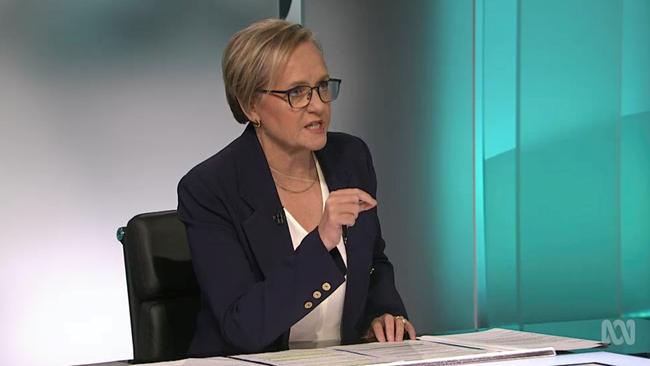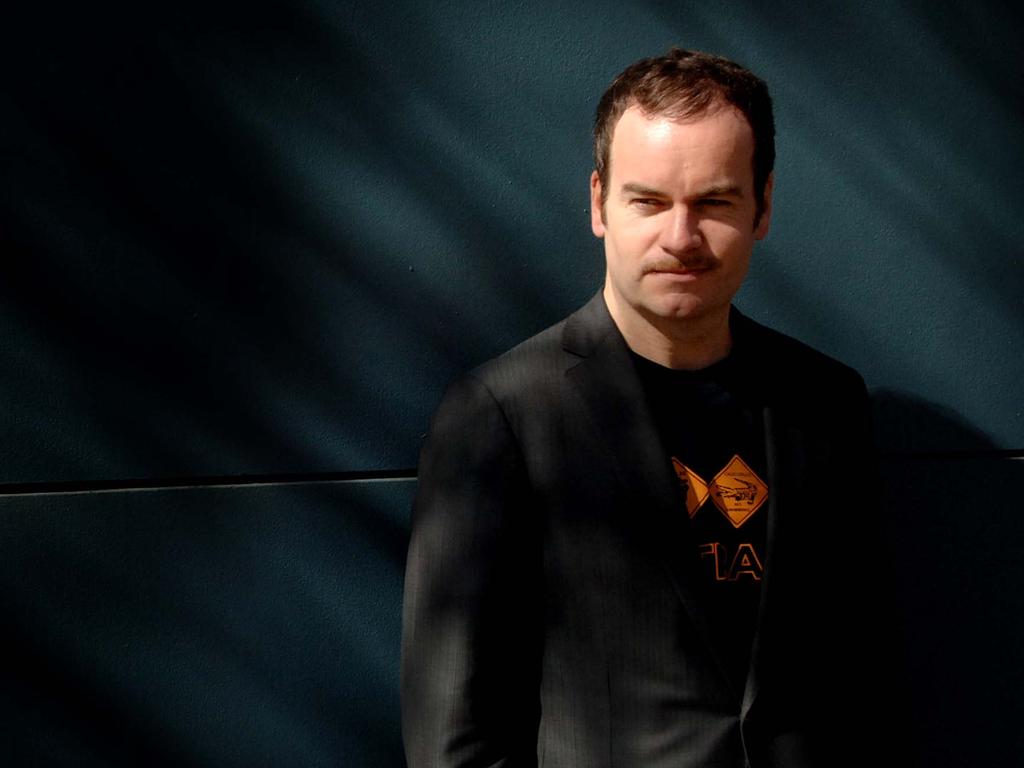Aunty’s fine with diversity, just not diversity of views
At the ABC, almost everyone agrees with almost everyone else on almost everything in a left-of-centre kind of way. So much for diversity.

But first some background. On April 8, Ferguson interviewed Israel Defence Forces spokesman Lt Col Peter Lerner. The discussion took place in the aftermath of an attack on a World Central Kitchen aid convoy in Gaza that led to the tragic death, among others, of an Australian worker. Israel accepted responsibility and apologised for the attack, which it maintained had taken place in what is called the fog of war. A similar event had occurred in the US withdrawal from Afghanistan during Joe Biden’s administration, when US forces attacked a van carrying an aid worker and his family.
Ferguson was not in a forgiving mood and the interview took a hostile tone. In particular, she would not accept Israel’s position that the attack had been a mistake.
This is despite the fact such an incident was not something the Netanyahu government would have wanted since it was damaging to Israel’s reputation as the Jewish state is fighting for its survival against Hamas, which is committed to wiping Israel from the face of the earth.
Ferguson consistently interrupted Lerner, who maintained calm and performed professionally. It is reasonable to assume 7.30 viewers are well enough informed to shape their own views about the credibility of the program’s guests. Apparently, Ferguson is of a different opinion.
This is how the interview concluded: “Lieutenant Colonel Peter Lerner, I am not accepting your view that it’s a mistake. There is a lot further to go with this story – but thank you very much indeed for joining us.”
In her Ombudsman Investigation Report, Cameron advised that the ABC received 52 complaints “alleging that the interviewer was biased against Israel” and objecting to “the presenter’s concluding statement”. Here’s what happens when an ABC staffer handles a complaint about a high-profile ABC presenter before reporting her findings to the ABC board.
Cameron supported Ferguson’s approach without any criticism – including what she referred to as “the presenter’s concluding statement”. In other words, the ABC ombudsman believes it is appropriate for ABC journalists who are conducting interviews to make statements at the end of the interview to which the interviewee has no right of reply.
Before concluding her investigation, Cameron sought 7.30’s view on its own story. Quelle surprise! as the saying goes. The anonymous 7.30 spokesperson defended Ferguson’s “concluding statement” since “there was no opportunity to ask a further question”. As to the first person pronoun, 7.30 declared: “The presenter sometimes uses the first person to challenge interviewers [sic] who are not answering; the ‘I’ is intended to be the presenter speaking on behalf of the program.” Cameron accepted this explanation and found the broadcast “did not breach the ABC’s editorial standards for impartiality”.
So, Ferguson has two personas. One use of the first person pronoun refers to Ferguson herself. The other to 7.30. Which implies that all 7.30 staff are of one view. And perhaps they are.
It’s a problem not confined to public broadcasting in Australia. Writing in The Free Press on April 9, National Public Radio senior business editor Uri Berliner reflected that an “open-minded spirit no longer exists within NPR and now, predictably, we don’t have an audience that reflects America”.
Berliner describes himself as a left-liberal (in the American sense of the term) but says that during most of his tenure at NPR, “an open-minded, curious culture prevailed”. However, since Donald J. Trump’s victory in the 2016 presidential election, this is no longer the case.
Today NPR presents “the distilled view of a very small section of the US population” – namely the left-liberal agenda. As a result, the station lost more than half of its conservative listeners.
Berliner argues that NPR has become the mouthpiece of progressive (left-wing in American parlance) causes. So much so that “there’s an unspoken consensus about the stories we should pursue”. Namely “one story after another about instances of supposed racism, transphobia, signs of the climate apocalypse, Israel doing something bad, and the dire threat of Republican policies”. In short, “it’s almost like an assembly line”.
Sound familiar? It’s like the ABC, as Chris Kenny illustrated on March 28 in his column with a random sample of ABC metropolitan radio in Sydney and Melbourne.
Then there are the TV panels on Insiders and Q+A and the recently deceased The Drum where almost everyone agrees with almost everyone else on almost everything in a left-of-centre kind of way. Sophie Elsworth reported in these pages last Monday that ABC spending on advertising has soared in 2024 despite being hit with falling audiences. It’s money for jam. The ABC will not get back its lost conservative viewers and listeners until it reforms, if it ever does.
Just as the ABC’s ombudsman investigates the ABC’s 7.30, so ABC managing director and editor-in-chief David Anderson prefers to be interviewed by ABC staff. On January 31, ABC Radio National presenter Patricia Karvelas interviewed her boss. In response to a question, Anderson stated: “I don’t see systematic bias at the ABC.”
This is not the point. In one sense, bias can be in the eye of the beholder. Diversity, on the other hand, can be measured empirically. The ABC constantly declares the need for diversity in areas such as identity, race, gender, sexuality, ethnicity and so on. But never for political diversity.
Again, it’s much the same at NPR. Berliner has written about “the extent to which people at every level of NPR have comfortably coalesced around the progressive world view”. He regards “the absence of viewpoint diversity” as the most damaging development at NPR.
This, too, is the ABC’s problem. It’s a conservative-free zone, the staff of which coalesce around left-of-centre viewpoints. That’s why it has lost so many of its once conservative audience. And that’s why not only 7.30 but also the ABC ombudsman believe that when Ferguson advances her view it is the view of the entire program.
Gerard Henderson is executive director of The Sydney Institute.








Could it be that ABC television’s 7.30 presenter Sarah Ferguson has two personas? It would seem so – according to ABC ombudsman Fiona Cameron.